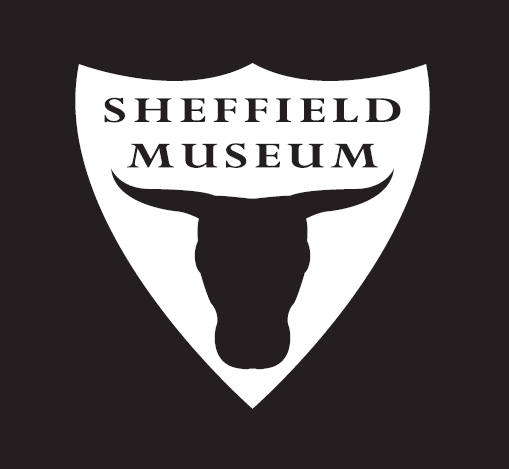Bring History To Life
With Guest Speakers
From The Past
Award Winning*
Travelling Secondary School Programs/Presentations
Brought Into Your Classroom
*Winner of the CILC Pinnacle Award from 2008-2014 based on teacher evaluations.
American History: Colonial Times to Present -
Grade 11
Meet The Colonial American Loyalist
- Invite a real Loyalist from the late 18th century into your classroom to discuss the issues and events that led to the transformation of both the U.S.A. and Canada from colonies to nations.
- The Loyalist will describe his experiences as a "Non-Conformist" during the American Revolution, and explain the Loyalist stand on territorial expansion, Indian relations, and good government.
- He may also illustrate other aspects of colonial life, such as work and entertainment by using artifacts (including a replica flintlock musket), and by teaching the students a barn dance accompanied by live fiddle music.
An Interview With Benedict Arnold -
Hero or Traitor of the American Revolution?
- Although his name became synonymous with traitor, Benedict Arnold believed himself to be a true Patriot to the end. Find out first-hand about his motives, experiences, and how his heroic actions saved the American Revolution.
- By talking with Benedict Arnold, your students will broaden their perspective on the American Revolution, and gain a deeper understanding of the motivations, beliefs, and experiences of the participants.
- Benedict Arnold is prepared to discuss (but is not limited to) the following topics:
- -His childhood and education
- -His experiences in the French and Indian War
- -His career as a merchant and sea captain
- -His role as a leader of the Sons of Liberty
- -His numerous victories in battle against the British
- -How the American Revolution went wrong
- -Switching sides
- -The Peace Treaty
- -His life after the war
- -The U.S.A. after the war
- Benedict Arnold will also have various artifacts on hand, including a British musket, a flintlock pistol, and colonial coins and paper money.
World History to the 16th Century - Grade 11
Meet The Medieval Peasant
- Bring a real peasant from 14th century England into your classroom to talk to your students about how 90% of the Medieval population lived.
- The peasant may discuss life in the aftermath of the Black Death and the Peasantís Revolt, the evolution of the manorial system, the local village community and economy, and changes and continuity in 14th century peasant life.
- He will also illustrate the nature of Medieval work and entertainment using farm tools, and by teaching a peasant dance accompanied by live bagpipe music.
Canada: History, Identity, and Culture - Grade 12
Meet The Loyalist Settler
- Invite a real colonial Upper Canadian from the late 18th century into your classroom to discuss life as part of one of Canadaís earliest and most influential immigrant groups: the Loyalists.
- The Loyalist will describe his experiences during the American Revolution, and explain the Loyalist stand on Indian relations and good government.
- The Loyalist will also illustrate other aspects of colonial life, such as work and entertainment using artifacts (including a replica flintlock musket), and by teaching the students a barn dance accompanied by live fiddle music.
Adventures in World History - Grade 12
Meet The Medieval Peasant
- Bring a real peasant from 14th century England into your classroom to discuss how 90% of the Medieval population lived.
- The peasant can discuss life in the aftermath of the Black Death and the Peasantís Revolt, the evolution of the manorial system, and the local village community and economy.
- He will also illustrate Medieval building techniques and farm technology using artifacts, and may (optionally) teach students a peasant dance accompanied by live bagpipe music.
World History: The West and the World - Grade 12
Meet The Medieval Peasant
- Bring a real peasant from late 14th century England into your classroom to discuss life in this pivotal era of great change that set the foundations of later rural European societies.
- The peasant can discuss the impact of the Black Death and the Peasantís Revolt, the decline of the manorial system, and the nature of local village community and farm life.
- He will also illustrate Medieval building techniques and farm technology using artifacts, and may (optionally) teach students a peasant dance accompanied by live bagpipe music.
Booking Details
Schedule
-
Presentations run between 60-75 minutes. Three or four programs can be presented in one day, depending on your schedule.
Requirements
for Dancing
-
Normally, a gymnasium or other large space is best for presentations with dancing. If such a space is not available, a spacious classroom may suffice, the dancing may be left out, or it can be done outdoors in good weather.
- For each class of up to approximately 30 students: $125.00
- For groups larger than 30, $4.00 per student.
- A small travel charge of approx. 20 cents per km (round trip) will apply. See examples below:
- HST will be added to the total
- Videoconferencing: $150, no travel charge
| City | Round-Trip Travel Charges |
| Brantford | $12 |
| Cambridge | $7 |
| Guelph | $14 |
| Hamilton | $14 |
| Kitchener | $14 |
| London | $42 |
| Mississauga | $29 |
| Oakville | $22 |
| Waterloo | $18 |
To book a programme,
please contact:
Marty Pullin
Phone: 226-606-3161
Email: shefmuseum@gto.net
